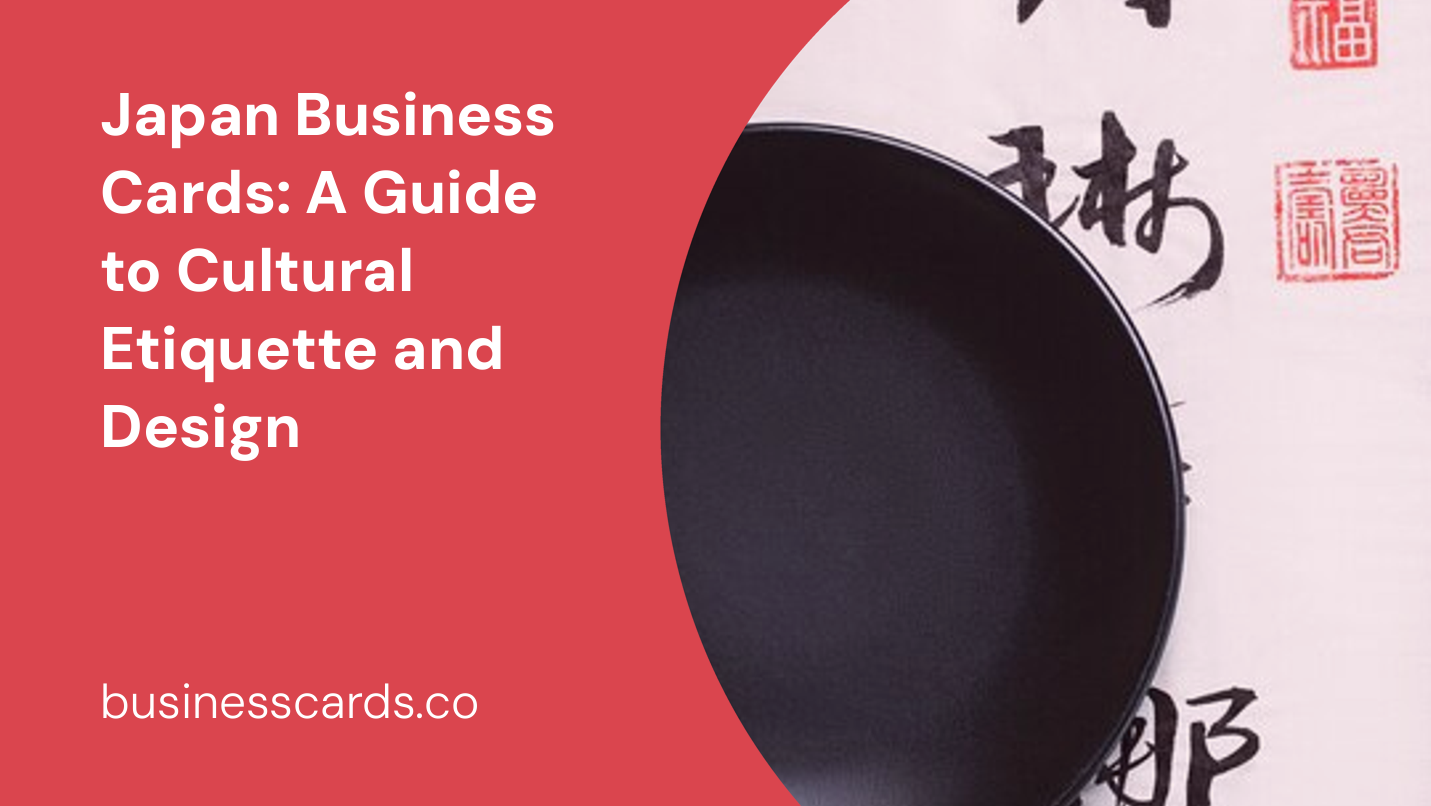
If you’re doing business in Japan, one crucial aspect of professional interaction that you can’t overlook is the humble business card. In Japanese culture, business cards, known as “meishi,” hold much more significance than a mere means of exchanging contact information. They are a reflection of your professionalism, credibility, and respect for Japanese customs. Understanding the cultural etiquette surrounding business cards in Japan is essential for effective communication and building strong business relationships. In this guide, we’ll delve into the intricacies of Japanese business card exchange, including design, presentation, and etiquettes, to help you navigate the world of Japanese business with confidence and success.
The Significance of Business Cards in Japan
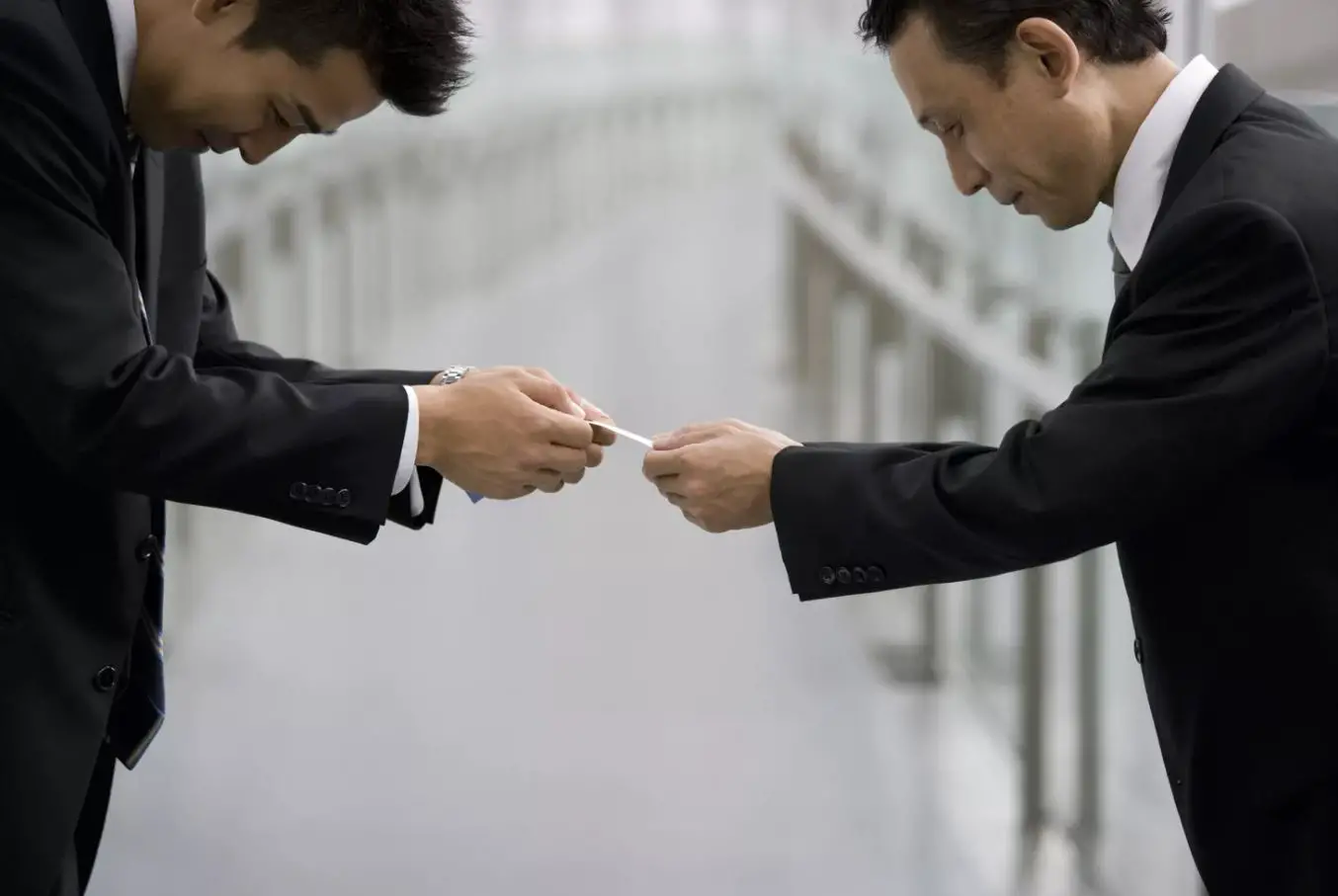
In Japan, the exchange of business cards is a customary ritual that signifies respect, formality, and hierarchy. Business cards are viewed as an extension of one’s professional identity and a representation of the company one represents. As such, they are treated with utmost respect and handled with care. Failure to adhere to proper business card etiquette in Japan can be perceived as disrespect or a lack of cultural awareness.
Designing Your Business Cards for Japan
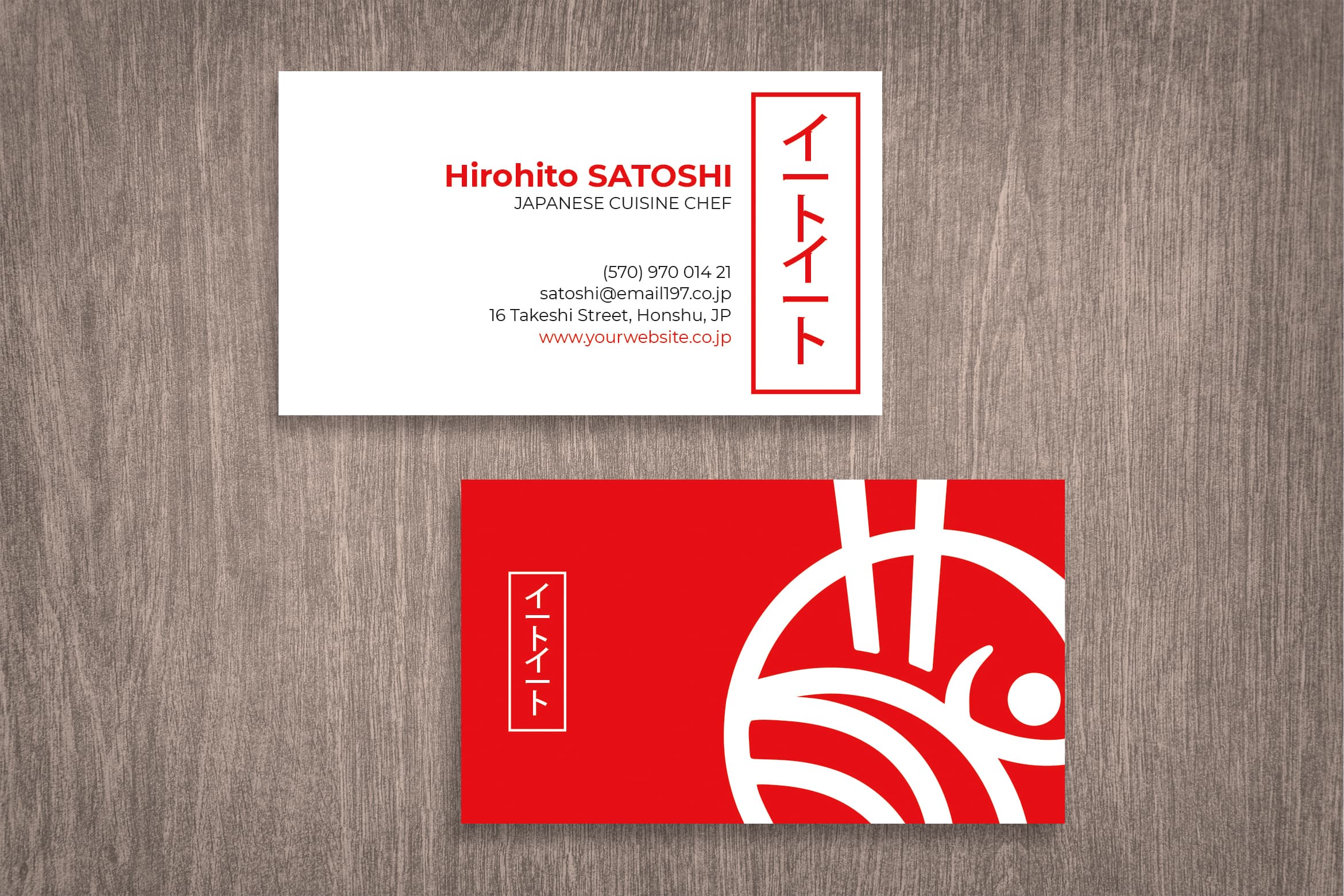
When it comes to designing business cards for Japan, simplicity, elegance, and attention to detail are key. Here are a few essential tips to keep in mind:
1. Keep it Simple and Professional
Japanese business cards typically have a clean and minimalist design. Avoid flashy colors, excessive graphics, or any form of clutter. Stick to a simple layout with your name, job title, and company information clearly displayed. The focus should be on the content, not elaborate design elements.
2. Include a Japanese Translation
If you want to make a great impression on your Japanese counterparts, consider adding a Japanese translation of your name and company information on your business card. This demonstrates your respect for the Japanese language and culture.
3. Use High-Quality Materials
Investing in high-quality cardstock and printing is crucial in Japan. Thin or flimsy business cards are often associated with a lack of professionalism. Opt for thick, durable materials that convey a sense of quality and attention to detail.
4. Double-Sided Cards
Including information in both English and Japanese can be beneficial. Consider using one side of the card for English and the other for Japanese. This allows your Japanese contacts to easily understand and remember your information.
The Exchange Ritual
Now that you have your well-designed business cards ready, it’s time to master the art of exchanging them in Japan. The business card exchange in Japan follows a particular ritual that you should be aware of to navigate the process smoothly.
1. Timing is Everything
The exchange of business cards usually takes place right at the beginning of a meeting. Make sure your cards are easily accessible and ready to be presented. Avoid pulling out your business cards too soon, as it may be perceived as overeager.
2. Present with Two Hands
When offering your business card to someone in Japan, use both hands to present it with the text facing the recipient. This gesture shows respect and politeness. Hold the card near the top corners and avoid covering any information. Allow the recipient to read your card thoroughly, taking their time to review it.
3. Receive with Gratitude and Respect
When receiving a business card from a Japanese counterpart, accept it graciously with both hands. Take a moment to read and acknowledge the card, showing respect for the individual and their position. Avoid immediately placing the card in your pocket or bag. Instead, keep it on the table in front of you during the meeting.
4. Demonstrate Attention to Detail
During the meeting, treat the business card with the utmost care. Avoid writing on it, bending or folding it, or placing it in your pocket while interacting with the card giver. Treat the card as a representation of the person themselves and the relationship you’re building.
The Cultural Etiquettes
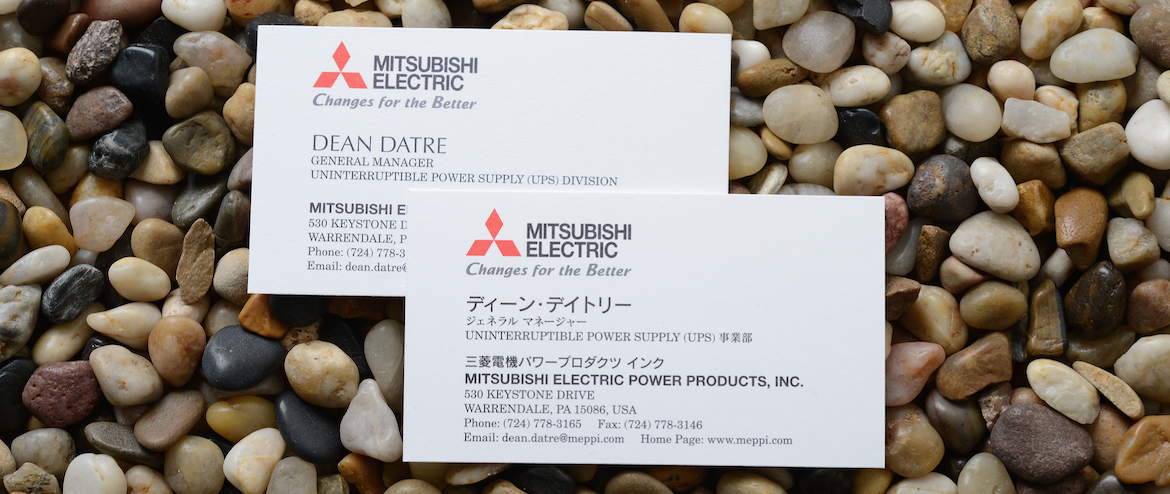
Beyond the specific rituals of exchanging business cards, there are several cultural etiquettes you should be aware of when networking and conducting business in Japan. These etiquettes contribute to building trust, respect, and long-lasting relationships. Here are a few key points to consider:
1. Bowing
Bowing is an integral part of Japanese culture and represents respect and humility. When meeting someone for the first time, it’s customary to bow slightly. Understanding the appropriate bowing depth and duration can take time, but a slight nod of the head is generally acceptable for foreigners.
2. Hierarchical Protocol
In Japan, hierarchy plays a significant role in business relationships. When exchanging business cards, the higher-ranking individual should offer their card first. Ensure you are aware of the hierarchy within your organization and observe the appropriate protocol to maintain harmony and respect.
3. Use Honorific Titles
When addressing individuals, it is common to use honorific titles such as “san” after their last names. This shows respect and acknowledges the hierarchical position within the company. If in doubt, it’s better to err on the side of formality until given permission to address someone less formally.
4. Gift-Giving
Gift-giving is customary in Japan and can be a way to express gratitude and strengthen business relationships. When attending meetings or events, it may be appropriate to bring a small gift. However, avoid presenting gifts during the initial business card exchange, as it may be seen as inappropriate.
Conclusion
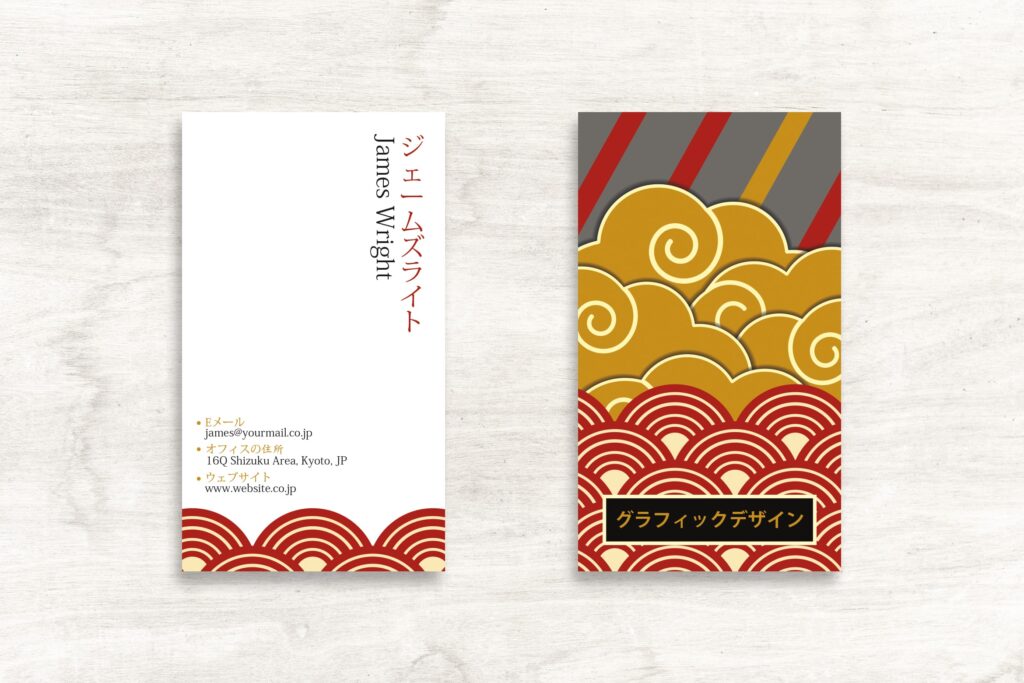
As you immerse yourself in the world of Japanese business, understanding the significance of business cards and adhering to the cultural etiquettes surrounding them is vital for building successful relationships. By carefully designing your cards, mastering the exchange ritual, and respecting Japanese customs, you demonstrate your professionalism and cultural awareness. Remember, Japan values tradition and attention to detail, so investing time and effort into understanding and practicing proper business card etiquette will undoubtedly contribute to your business endeavors in this vibrant and unique country.
So, whether you are preparing for a meeting in Tokyo or networking in Osaka, always remember the importance of Japan business cards and the cultural integrity they hold.
Olivia Reynolds, a marketing maven, is passionate about the impact of graphic design on brand success. Her love for outdoor adventures and travel fuels her fresh perspective on the importance of visual aesthetics in business cards and branding.